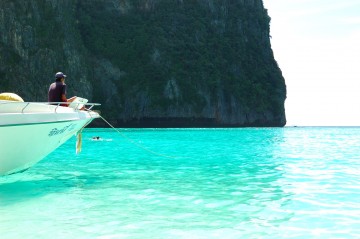Posted by admin , on Aug, 2016

Radios are an essential piece of equipment when on a boat. It is likely the only way to communicate with other boaters or to request assistance. Likewise, most marinas and coast guards require that you have a marine handheld radio, whether you have the room for bigger radios or not. It is usually considered to be a safety item and can be more reliable than cellular phones, especially when on the open water.
While fixed-mount radios are also necessary, most professionals advise that you have both options in case the electrical system fails, or you need to move while communicating. For example, handhelds use a battery pack and antenna that is separate for each, so even if the boat isn’t functional, you can still call for help.
Floating Options
A marine handheld radio can be designed to float in the water and be waterproof or resistant to water. Therefore, if it falls overboard or otherwise lands in water, it can still be used and won’t fall to the bottom of the sea. While they’re newer than traditional radios, they can be an excellent choice if you’re worried that you or it will end up in the water.
Battery Life
Most radios have a range of up to 20 hours and as little as 7.5. Battery life will depend on its size, whether it uses GPS receivers and its power setting. The point of a marine handheld radio is to be used when it’s needed. You don’t want to find you have a dead battery or no other batteries to replace the dead one.
Built-In GPS/ DSC
Many newer radios come with built-in GPS options and a DSC, which is like an emergency beacon. These are an excellent option if you know you want DSC and GPS on your boat.


